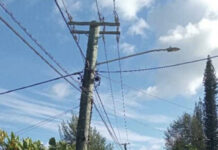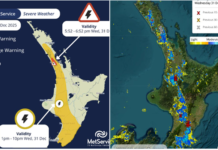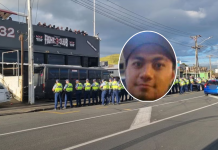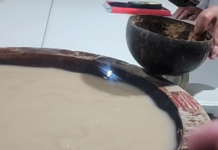“BEING the only woman in Parliament is not unique to me,” says the Hon. Minister of Education Dr. ‘Ana Taufe’ulungaki when speaking to 30 members of the first ever Practice Parliament for Women in Tonga.
Sharing her experience as the only female MP in Parliament, Dr. Taufe’ulungaki says there were others before her including her Royal Highness Princess Siu’ilikutapu and Papiloa Foliaki and others. However the difference is that they were elected and she was not.
“It would not have mattered too much if it were the political structure but in the new political system, where Tonga is moving towards greater representation of the people, my being a non-elected member has been a very sore issue for many of my fellow MPs,” says Dr. ‘Ana Taufe’ulungaki.
She adds MPs object to her presence in the House, not so much because she was a woman, but to the fact that in their perceptions, she came through the back door.
“From their view points, the elected members had sacrificed their time, money, careers, and family life, in pursuit of their political goals. The campaign trail was a long and difficult one for many. Through such pains, they have earned their right to be People’s Representatives, and the right to speak on behalf of their constituencies,” say Dr. Taufe’ulungaki.
She further explains that she understands how the other MPs feel about her and encouraged them never to give up.
"If you wish participate fully in the processes of developing, scrutinizing, submitting, and approving good laws for the development of this country. I can assure you will be welcomed not as a woman, but as a fully deserving member of Parliament. You will have earned the right to be there,” emphasized Dr. Taufe’ulungaki.
She says women are already well equipped to cope with the duties and responsibilities of a parliamentarian. Therefore they do not need to justify themselves to the nation and especially to the men of Tonga that they are capable.
She says she gets upset when people say that women need to practice how to be a parliamentarian, as if a woman by virtue of her biological nature needs special qualifications, other than already specified by law.
“Clause 65 of the Constitution allows anyone who is 21 or more, not a noble, is not insane or has been convicted of a criminal offence punishable by imprisonment for more than two years – to vote in an election or to run for Parliament,” says the non elected MP.
Challenges encountered
Dr. Taufe’ulungaki also shared other challenges she encountered being the only female MP in Parliament.
That includes dealing with the boredom of sitting for long periods and stressing out thinking about the outstanding matters waiting for her in the office that must be dealt with expeditiously.
Another challenge is trying to balance the work of the Ministry and that of Parliament, making adequate time for both and try to do both effectively and efficiently.
Another obstacle she outlines was having enough time to read and absorb the various pieces of legislation that will be debated in the House is another obstacles the Hon. Minister had also encountered. And making attempts to see how each piece is linked to existing legislations and to the Constitution.
She also mentions that coping with the social demands of being a minister an issue.
“Social events demand a great deal from one’s time but these come with the territory. I find this aspect of my life and work quite draining on my energy and personal resources.
Budgeting time for professional and personal development was another problem. Therefore Dr. Taufe’ulungaki advises participants that keeping oneself informed and aware of issues in the country, the region and globally.
“One needs to have access to quality research and support.
She also reveals the importance of support group and quality advice from diverse stakeholders, including donors and development partners. Dr. Taufe’ulungaki mentions that during the Vote of No Confidence period, the support of the Fakatouhama Group was immensely reassuring.
Therefore she stresses that such support groups is needed not just in time of crises but at all times.
The academic scholar also points out the importance of ensuring that one is thoroughly grounded in Tonga’s contexts.
"One’s work is meaningless unless it is thoroughly grounded in the contexts of Tonga. We have to understand our people, our land, our history, culture and heritage, our language, our beliefs and values, who we are, where we come from, and where we would like to be. Unless we have such understandings, our work will be rootless and worthless,” the Hon. Education Minister explains.
Dr. Taufe’ulungaki concludes sharing her experiences with the 30 member of the Practice Parliament by stressing the importance of behaving ethically at all times and an unwavering faith in God’s grace, mercy, love and manifold blessings.
“Ethics is essential to our work and the purposes for which we work. Unless we are ethical beings in every way, we cannot make the difference that we purport to work towards. Transparency, accountability, honest, integrity, truthfulness, are important but so are the values that underpin all our relationship – ‘ofa faka’apa’apa, lototo, mamahi’i me’a, feveitokai’aki and tauhi vaha’a. With such values we cannot go wrong,” says the Hon. Education Minister.
SOURCE: parliament.gov.to







